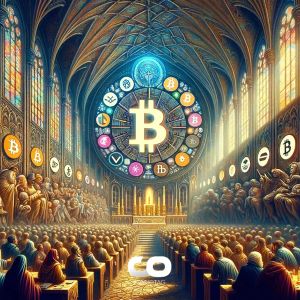BNB Chain Hits 0.8-Second Blocks With Maxwell Fork
2 min read
The BNB Smart Chain (BSC) has completed its historic Maxwell hard fork successfully, lowering average block times to 0.8 seconds from 1.5 seconds—a technological improvement that doubles the speed of the network and makes BSC the fastest EVM-compatible blockchain. The upgrade, activated on 30th June at 2:30 AM UTC, provides faster DeFi settlements, simplified NFT trades, and virtually instant gaming dApp interactions, while further increasing BNB Chain’s competition with Solana and Arbitrum. The Tech Behind the Speed: BEP-524, 563, 564 Maxwell’s sub-second blocks are supported by three proposals: BEP-524 : Halves block intervals to 0.75 seconds (real-world average: 0.8s), enabling near-instant finality of transactions. BEP-563 : Reimagines validator messaging, avoiding lost votes and sync lag even at higher speeds. BEP-564 : Introduces GetBlocksByRangeMsg and RangeBlocksMsg messages, reducing node synchronization times by 40%. This three-pronged solution solves blockchain’s ”speed trilemma”—throughput, security, and decentralization—by optimizing validator coordination without sacrificing network robustness. Higher Stakes, New Risks More challenging blocks for validators: Longer turns . Validators now turn in 16 blocks per turn (down from 8), requiring hardware that cannot miss slots. Epoch increased . From 500 to 1,000 blocks, reducing rotation frequency but adding hardware/reliability risk. Gas limit lowered . Per-block gas cap lowered from 70M to 35M to decrease state bloat, concentrating fee pressure on congestion. Early figures reveal a 5% increase in validator churn as smaller operators struggle with the technical demands, while high-quality validators earn more rewards. Gas Fees and dApp Impact: Speed ≠ Cheap Transactions Maxwell accelerates transactions but does not necessarily decrease gas fees: Base fees remain unchanged , but the 35M gas limit jams up during surge periods (e.g., NFT drops). DeFi arbitrage thrives , PancakeSwap trading volume surged 22% after the upgrade as traders exploit faster settlements. Gaming/NFTs reimagined , live interaction now possible, with examples like SecondLive achieving 30% higher user retention. BSC vs. Solana vs. Arbitrum Chain Avg. Block Time Key Advantage Weakness BSC (Maxwell) 0.8s EVM compatibility Centralization risks Solana 0.4–0.8s Raw throughput Frequent outages Arbitrum ~1.2s Ethereum security Higher latency BNB Chain’s EVM benefit could lure developers from Solana (even for naked speed) and Arbitrum (even for security), especially for DeFi and gaming dApps that prioritize interoperability. Stable, But Fundamentals Tightened BNB exchanged over $648 at the time of the upgrade, 6.5% higher over the past week. Experts note the price strength is a sign of belief in BSC’s technical leap, but that it will need: dApp migration: If apps like Uniswap V4 or ApeChain move onto BSC. Fee dynamics: If enough volume will be attracted by lower latency to offset gas unpredictability. The Bottom Line Maxwell on BNB Smart Chain isn’t just a performance boost—it’s a strategic move. With sub-second blocks and EVM compatibility, BSC is now a viable choice for developers seeking Solana-quality speed without sacrificing Ethereum’s tooling. As validators react and dApps ride the new speed, BNB Chain can unleash a wave of innovation in DeFi, gaming, and more.

Source: Coinpaper



